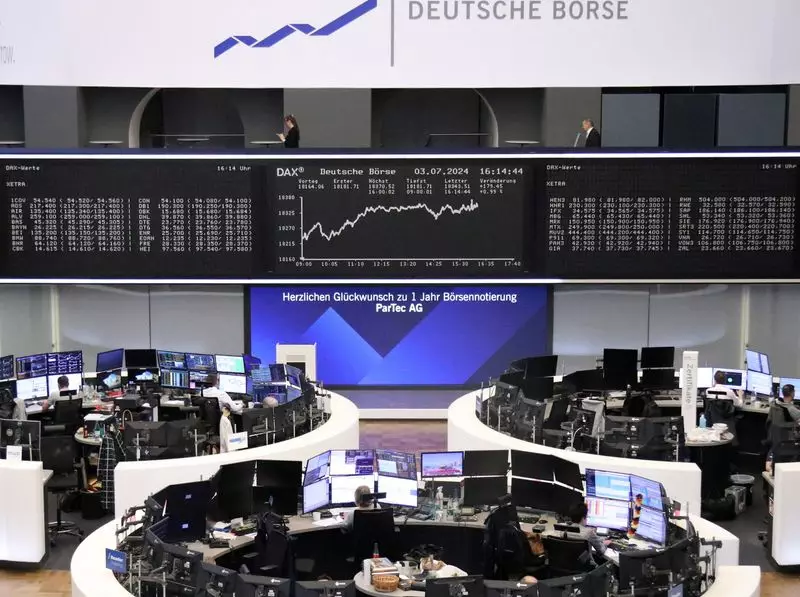The European stock markets experienced a surge in optimism on Thursday, driven by the expectation of U.S. interest rate cuts due to soft economic data. This positive sentiment was reflected in the rise of the pan-European STOXX 600 index by 0.6% to reach a one-week high. Investors were particularly keen on the London markets as voting began in the UK general election, with polls indicating a potential victory for the Labour party. The FTSE 100 in Britain advanced by 0.8%, with market participants eagerly awaiting the outcome of the election.
The anticipated victory for the Labour party in the UK general election was widely expected by the markets. Analysts like Bas van Geffen from Rabobank suggested that the market had already factored in this scenario and that it would not have a significant impact unless there was a surprising outcome. The focus shifted towards determining the extent of the Labour Party’s majority, which could influence investor confidence and market dynamics in the coming weeks.
French stocks experienced a 0.8% increase for the second consecutive day amidst heightened efforts to counter the far-right party, National Rally (RN). Opponents of RN intensified their campaign to prevent the party from gaining power, with an opinion poll indicating that RN might not secure an absolute majority in the upcoming parliamentary election. This political uncertainty led to a boost in European lenders’ sub-index, which included prominent French lenders like Societe Generale and BNP Paribas.
The weakening economic indicators in both the U.S. and Europe have raised expectations of possible interest rate cuts by central banks. Reports of increased U.S. unemployment benefits and unexpected declines in German industrial orders and Swiss inflation suggested a cooling global economy. This development has reinforced market expectations of future rate cuts, with analysts closely monitoring the monetary policy decisions of central banks like the Federal Reserve and the European Central Bank.
Amidst the broader market trends, specific companies experienced notable stock movements. Smith & Nephew, a medical equipment maker in Britain, saw a remarkable 6.8% increase after activist investor Cevian Capital disclosed a significant stake in the company. Conversely, Pluxee, a voucher and benefits company in France, witnessed a 9.2% decline following weaker-than-expected sales figures. Ericsson, a telecom equipment maker in Sweden, faced a 1.2% drop in stock price due to recording an impairment charge in the second quarter of 2024.
The interplay between political events, economic data, and corporate performance has a profound impact on European stock markets. Investors closely follow developments such as elections, central bank policies, and company-specific news to make informed decisions. The volatility in stock prices reflects the dynamic nature of the global economy and the interconnectedness of various factors influencing market behavior. As market participants navigate through uncertain times, staying informed and agile is paramount to navigating the complexities of the financial landscape.

